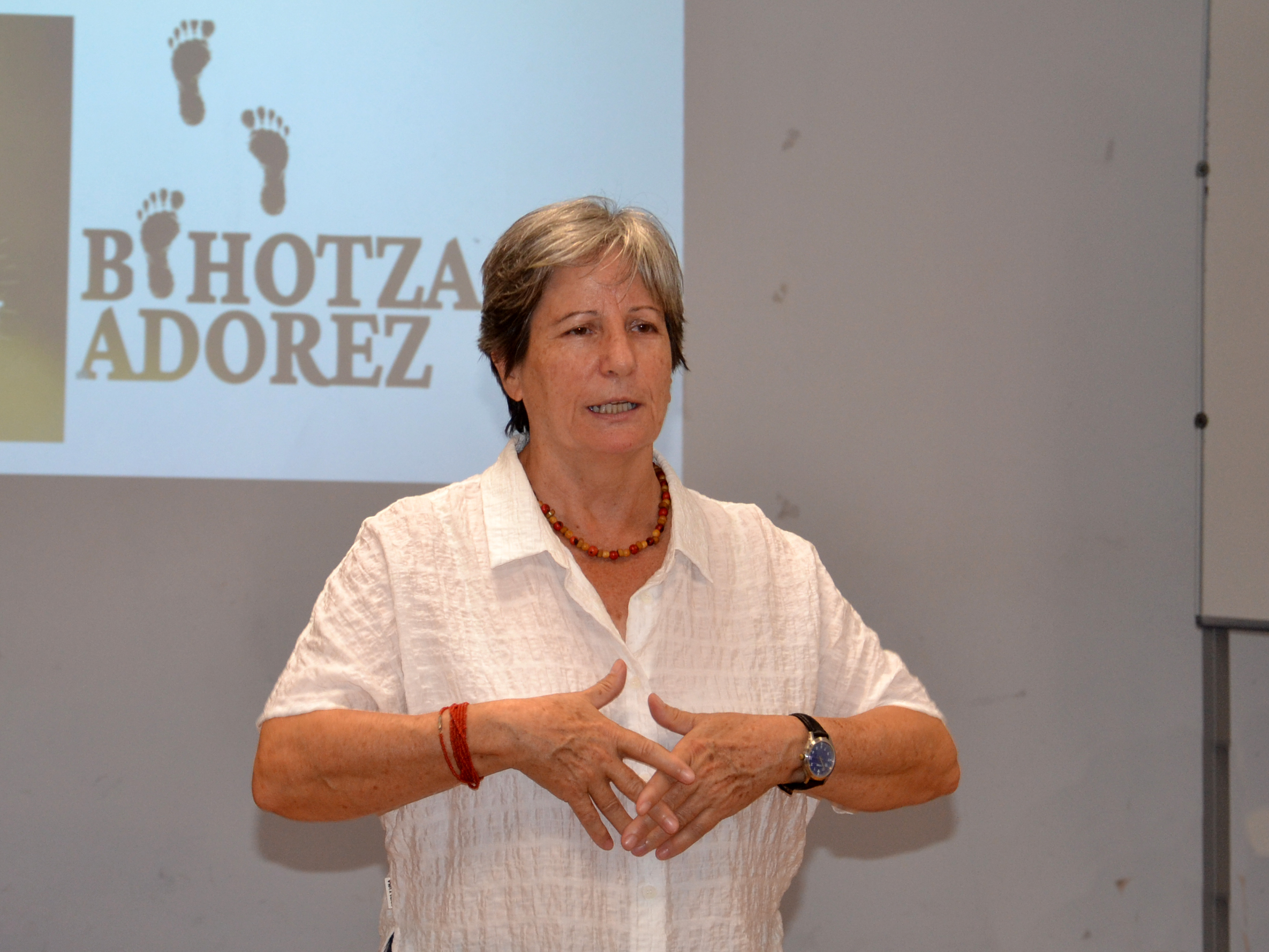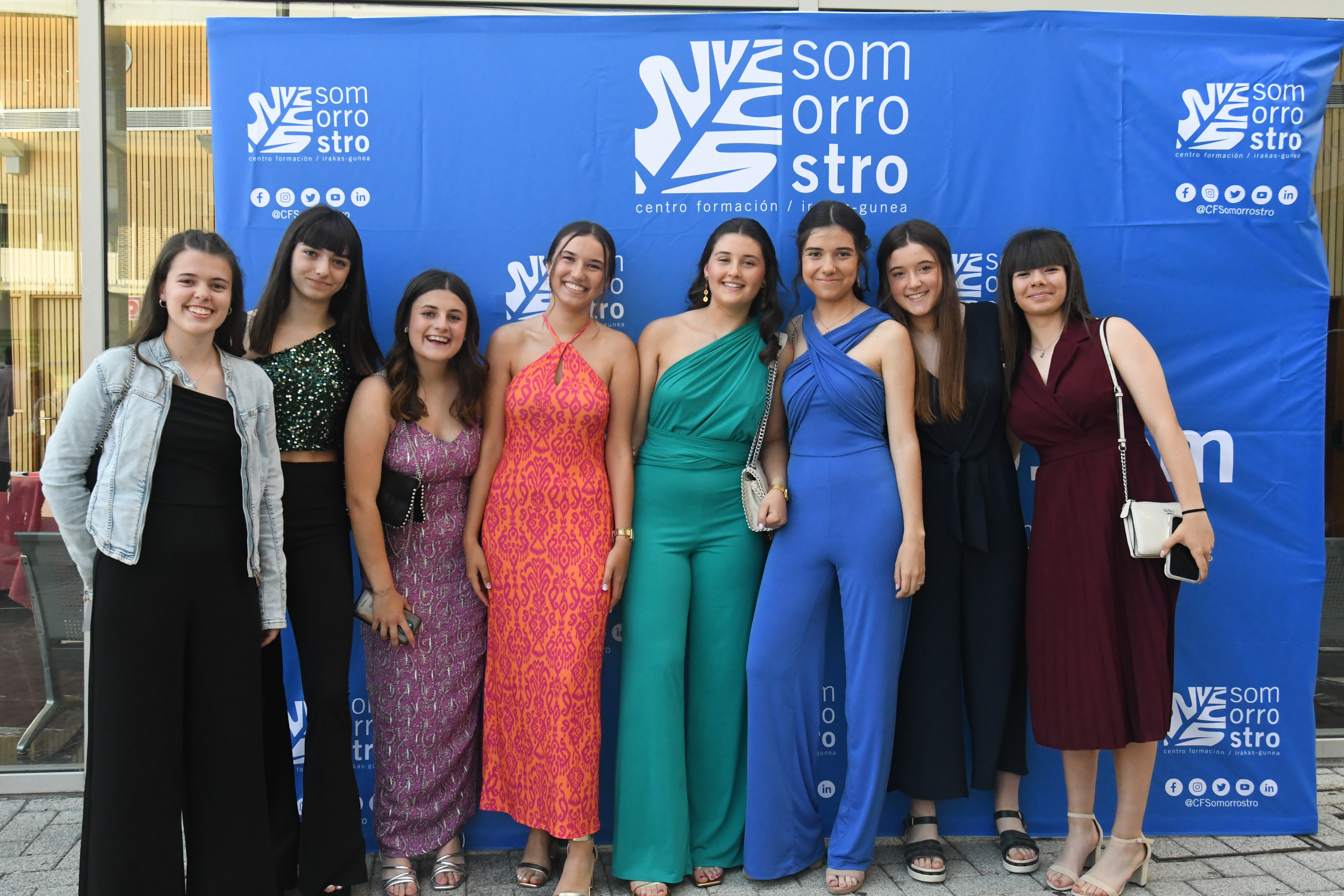Today we would like you to meet Ranim and Hatim. We are proud to present them to you because they are two students who are an example of effort, and self-improvement, and who have brought us diversity, knowledge and cultural richness. They have spent two years with us studying Basic Vocational Training: Ranim in Hairdressing and Aesthetics and Hatim in Home Maintenance. Both have finished with excellent marks. We wanted to share their experience in Somorrostro.
How did you feel when you arrived at the Centre?
Ranim: I was afraid because everything was very different and I didn’t know anyone. I didn’t know Spanish, and I didn’t understand anything.
Hatim: Nervous about how I would be received by my colleagues.
What have these two years in Somo been like?
R: Very good, much easier than in my country. Here everyone was kind to me. I really liked my colleagues’ interest in my culture. I was able to explain my veil, Ramadan,… I think we all learned a lot.
H: I learned a lot. About the language, the culture and myself. I felt respected by my classmates. And the teachers have made me feel like one of them from the beginning.
For the last two years, volunteer teachers and non-teaching staff, voluntarily, have been linguistic partners for students who do not speak our language. What has this project brought you?
R: I really like Goizane, she is very kind and we laughed a lot. With her I spoke more calmly, we were alone, like friends, and little by little I understood her and responded to her. She has taught me a lot of words and how to understand the people here.
H: With Maite I felt very loved and cared for. She has helped me a lot with pronunciation above all. She has given me her time to eat, without asking for anything in return. I will never forget that.
Help us to improve as a centre. What did you miss? What would have been good to make you feel more welcome?
R: I am very happy like this. Grateful. I have had the most important thing: listening. Above all, the teachers have been concerned about me, my problems, my family. They asked me a lot of questions. My classmates have always been very kind to me. I am grateful for the Parejas Lingüísticas project, I have learned a lot with Goizane, alone, I have learned with confidence, talking about my things. I know that she did it voluntarily, and I am very grateful to her for that.
H: I have been very integrated from the beginning. It’s nice to be with other people who have the same experience as you, but outside the classroom because otherwise, we would be talking all the time in Arabic and about our things. I wouldn’t change this. It’s harder, but you learn sooner. We have been close because we were studying at the same level, although different specialisations. But if there is a migrant person in another building, it can be good to bring them together at some point, so that they don’t feel alone.
As you can see, they are pure self-improvement and gratitude. Two attitudes that reflect our migrant students, who join our crazy reality, without understanding, but in a constant effort to adapt, to learn with every detail that surrounds them. In particular, Hatim and Ranim have broken down many stereotypes among their classmates, showing another face of migrants. People in search of a life with rights, which we should remember should be universal, but there are those who have to migrate from their land to find them. And it makes us think again: and what do they find here? are we a welcoming society? And you, are you welcoming?
















